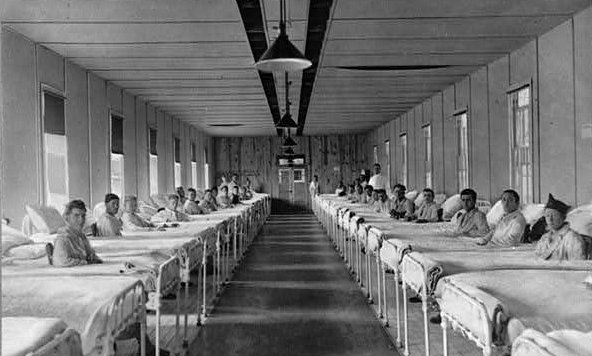How are you doing?
Ok.
Do you play a sport?
Yeah.
Which one?
Soccer.
Do you like music?
Yeah.
What’s your favorite band?
I like a lot of bands.
Yeah, what’s one of them?
[some band I don’t know]
Oh, I don’t know them.
The above exchange is how small talk often goes between a youth group leader and member. It takes a while to build rapport in that setting. After working with youth groups for many years I can attest to that. The leader hopes such exchanges culminate in weightier subject matter, like the Faith. But it’s often hard to get there. This is just the nature of small talk. It’s difficult to make a jump from the banal to the sublime. Small talk is, well, small. And it often stays that way in the course of a conversation, which is perfectly reasonable. But when you are doing ministry, you try to look for ways to steer the conversation into matters of faith. And in youth ministry that’s usually hard to do.
I am working at a hospital this summer, offering spiritual care to patients. One pleasant surprise I’ve had: small talk goes a long way. After introducing myself I often find that the conversation actually takes off. Within a few seconds I am engaging in a serious discussion or prayer with a complete stranger. We go from Hi, how are you? to praying the Rosary or discussing how to deepen our relationship with God. I think there are a few reasons for this. First, patients in a hospital are suffering. Some are suffering more than others, but everyone is going through something difficult. The word patient even comes from the Latin root pati– meaning to suffer or endure. Physical suffering tends to open us up to more existential questions. We begin wondering about the meaning of life as we are faced with our own mortality. This naturally leads to questions about transcendence and ultimately about God. It’s difficult to continue bracketing these ultimate questions when faced with pain and even the possibility of death.
Working with patients, I have also found that the religious habit is a powerful symbol, which helps get past the small talk quickly. Patients see a religious brother (not just a good-willed guy who’s interested in helping) who is there to minister to them when I walk into their room. The symbol is bigger than me. It represents ministry. It has spiritual import that patients associate with the pastoral care they desire. So the encounter, whether it’s a discussion about their condition, their family, or their faith, takes place in an expedient way. This also has made me aware of my instrumentality as a chaplain. We often talk about causality and instrumentality as Dominicans. These are important concepts for understanding how God works through us in this world to achieve his providential effects. But being there in a hospital and actually seeing God work through others and me brings this classroom concept to life.
Finally, the greatest reason small talk goes a long way in a hospital is because of grace. Of course God’s power is always already at work in the world, creating and sustaining life. And his grace can be at work throughout our lives. But it is felt and cooperated with in an acute way in a hospital. And its effects are beautiful to behold as those who are suffering humbly seek God, his mercy, and his strength.
Now my introductions to patients don’t always lead to a great conversation or deep prayer. Sometimes people aren’t interested, or are busy, or are about to be discharged. I greet them, they return the greeting, then we go our separate ways. But more often than not, a few words of introduction are all that’s needed to have a deep conversation or prayer. It can even lead to reception of the sacraments. We believe God transforms our sufferings. This is a powerful mystery at the root of our Faith. But in my short time as a hospital chaplain I also see that God can redeem and work with anything to achieve his purposes, even small talk.
✠
Image: Men Sitting by Beds at Walter Reed Hospital Ward







